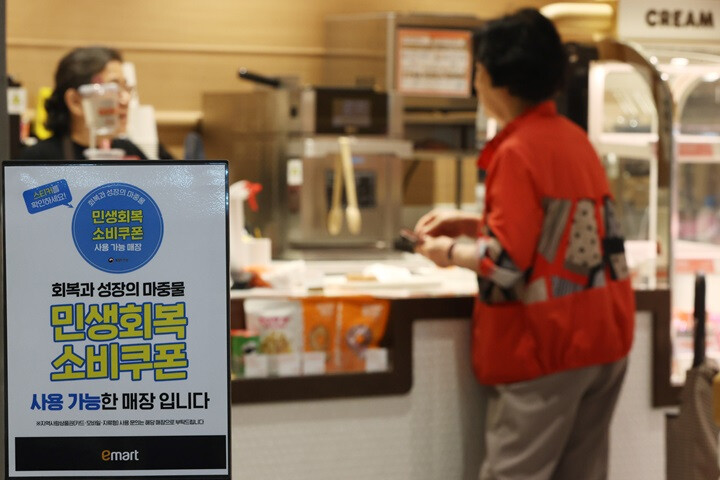
SEOUL—In a practice that has ignited outrage among small business owners, a growing number of large-scale food ingredient marts are facing allegations of illegally accepting government-issued consumption vouchers, a program designed to inject life into the local economy by supporting small merchants.
The controversy centers on a policy that restricts the use of these vouchers—part of a nationwide economic stimulus package—to businesses with an annual revenue of less than ₩3 billion. However, investigations and reports from industry groups reveal that some larger marts are exploiting loopholes to bypass this regulation, effectively siphoning off funds intended for smaller, struggling enterprises.
The Shell Game: A Form of Fraud
According to a joint statement from the Korea Supermarket Cooperative Federation and the Korea Federation of Small and Medium Enterprises, these large establishments are engaging in sophisticated, and often brazen, forms of deceit. They are reportedly setting up "disguised affiliate stores" or "ghost corporations" within their premises. In some cases, a large mart, which well exceeds the ₩3 billion revenue threshold, might use a separate point-of-sale terminal from a smaller business—such as a fruit or vegetable stand operating within the same building—to process the coupon payments.
This "shell game" allows them to appear as a legitimate small-scale vendor, tricking both customers and the system itself. The small business associations noted a disturbing trend where these marts are even openly advertising the acceptance of the vouchers, creating an unfair competitive advantage.
Exposing the Deception
The associations have vowed to take decisive action. They are initiating a nationwide campaign to gather reports of fraudulent activity and are planning to submit these findings to relevant local authorities. Their demands are clear: suspend the business operations of any fraudulent affiliates and, where appropriate, request full tax investigations from the National Tax Service.
Concrete examples of this malpractice are already surfacing. In Uijeongbu City, a large food mart was found to be using a separate business’s card terminal to accept voucher payments. Similarly, in Suwon City, a mart with revenues exceeding ₩10 billion reportedly created a new legal entity to install a dedicated terminal for voucher transactions, an act that constitutes illegal revenue splitting.
A representative from the small business federations stated, "This is a serious violation of the policy's intent. It not only undermines the purpose of the voucher program but also exacerbates the hardships faced by genuine small business owners who are already struggling to compete with these larger chains."
The Ministry of the Interior and Safety, which oversees the voucher program, has directed local governments to handle reports of fraud through their designated "fraudulent distribution reporting centers." If a business is confirmed to be a "disguised affiliate," their voucher-accepting status is revoked, and the information is shared with tax authorities.
While the Korea Mart Association acknowledged the problem and affirmed its commitment to guiding members toward compliance, it also voiced concerns. A spokesperson highlighted the delicate balance between preventing fraud and not creating new regulatory hurdles that could stifle the growth of small businesses that aspire to become mid-sized.
As the government continues its efforts to boost local economies, the battle against these deceptive practices remains a critical challenge. The small business community is united in its call for stricter enforcement and a level playing field, ensuring that government aid reaches those who need it most.
[Copyright (c) Global Economic Times. All Rights Reserved.]






























